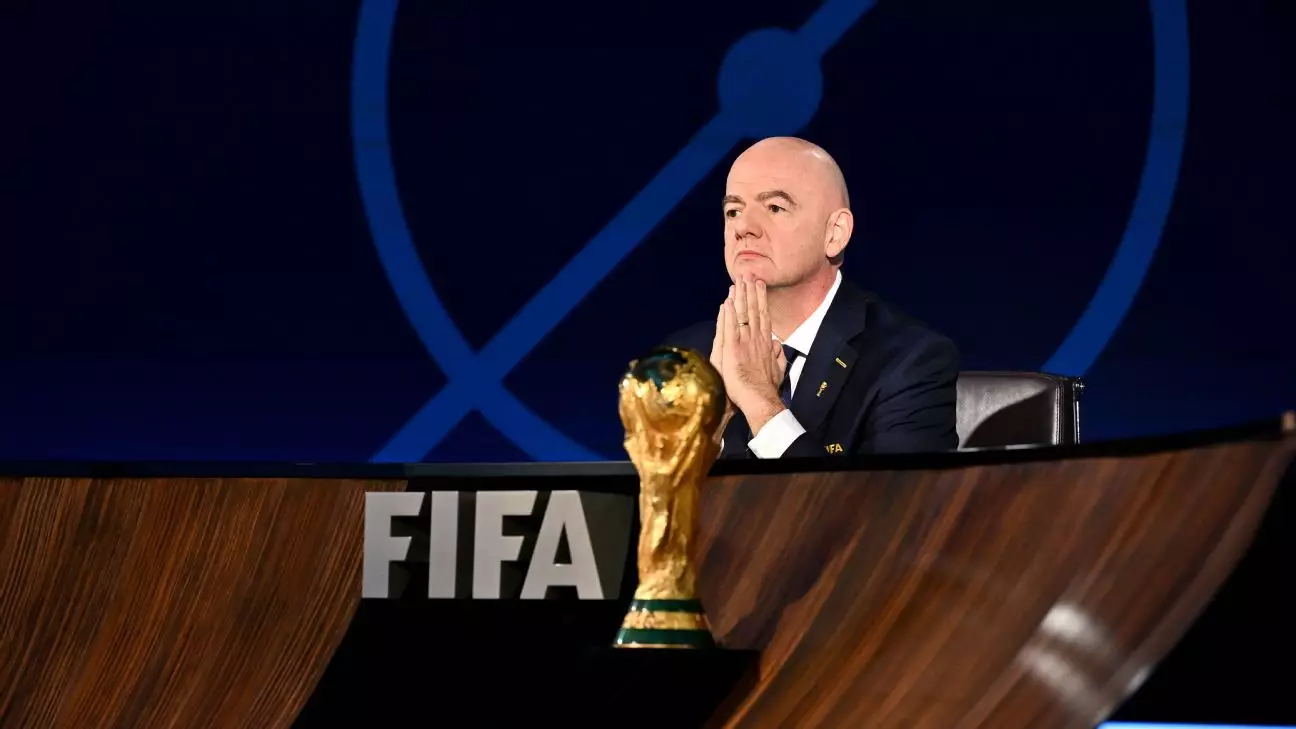The announcement regarding the host nations for the 2030 and 2034 FIFA World Cups marks a significant turning point in the landscape of international football. In a decision that was confirmed at a virtual extraordinary general congress, FIFA President Gianni Infantino revealed that the upcoming tournaments would be hosted by Morocco, Portugal, and Spain in 2030, while the 2034 edition is set for Saudi Arabia. This unprecedented arrangement, which serves to expand the global reach of football, is a noteworthy strategic shift for FIFA, as it aligns with the organization’s goals of promoting the sport across various continents.
Saudi Arabia’s sole bid for the 2034 World Cup has sparked both intrigue and controversy. The country is investing significantly in sports as part of Vision 2030, an initiative aimed at diversifying its economy and enhancing its global image. While the decision has been met with applause from FIFA members, it raises questions regarding human rights and the kingdom’s past treatment of dissent. The juxtaposition of sports and politics is increasingly evident, highlighting the complexities of hosting major international events. As the tournament date approaches, scrutiny of Saudi Arabia’s practices is likely to intensify, thereby impacting international relations and cultural perceptions of the host nation.
Conversely, the 2030 World Cup carries a historical significance, as it marks the centenary of the inaugural tournament held in Uruguay. The planned inclusion of South American countries—Uruguay, Argentina, and Paraguay—in hosting one-off games emphasizes the rich football heritage of the region. The intention to stage the opening match at Montevideo’s Centenario Stadium is particularly poignant, serving as a nostalgic reminder of football’s origins. By returning to its roots, FIFA aims to foster a sense of connection and nostalgia among fans and players alike.
However, the decisions are not without their challenges. The growing discontent among European leagues like the Premier League and LaLiga over scheduling conflicts linked to a winter World Cup showcases the friction between club and international football commitments. The need for a “concrete agreement” highlights the logistical nightmares that FIFA must navigate while trying to maintain harmony within the sport. Furthermore, FIFA faces criticism for the bidding process. The Norwegian Football Federation has openly condemned the lack of competition, labeling it “flawed and inconsistent.” This criticism not only questions FIFA’s governance but also highlights broader concerns regarding transparency and fairness in international sports.
One of the most notable changes accompanying these World Cups is the expansion of the tournament to 48 teams, which aims to include more nations in the global footballing fraternity. Automatic qualifications for host nations add another layer of complexity, sparking discussion on the competitive integrity of the tournament.
The decisions surrounding the 2034 and 2030 World Cups reflect a broader ambition for FIFA to cultivate football’s global presence. Still, they also invite scrutiny on numerous fronts—from political implications to logistical hurdles—underscoring the multidimensional challenges of modern-day sports governance. As the footballing world gears up for these historic events, it remains to be seen how each host nation will navigate the complexities associated with their respective tournaments.

